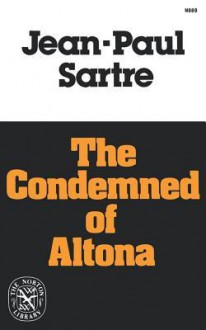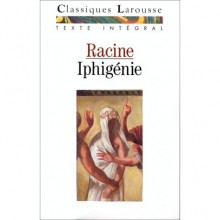
I must say that I find these French plays to be a little difficult to follow at times namely because of the way the scenes are set up. It seems that each of the scenes have only specific characters in them and when one of the characters leaves (or a new one arrives) then suddenly the scene ends and a new one begins. They are not like Shakespeare where the scenes are location specific, and the way that Shakespeare constructs his scenes and his plays I find much easier to follow. However, when my internet is working better (I seem to be having problems with it on my laptop though I suspect that it may be the operating system as opposed to the internet connection itself) I will try to watch some of the Moliere plays on Youtube (they are available on Youtube). The other thing I was thinking of was getting a dongle, but that is not necessary at the moment (and I pay for the internet anyway).
This play seems to be quite similar to Tartuffe, and apparently it was not as popular as the previous play. In fact, from the introduction, I get the impression that the play actually flopped (if it was possible for a play to flop, but I guess it is when it has a very limited shelf life, though some plays have limited shelf lives because the actors have other projects that they want to go onto, though some plays, like the ones that have run for 20+ years in the West End probably cycle through actors). The difference here is that we have a philosopher in the house as opposed to a religious zealot (for want of a better word) though we have the standard woman who wants to marry her crush, but that marriage isn't allowed to happen because she is supposed to marry somebody else, however it turns out that the somebody else was a fraud so she ends up marrying the guy she wanted to marry in the first place. Plays like these (and there are a number in the Moliere collection) makes me wonder if there was such a thing as romantic love during the 17th century. I was always under the impression that arranged marriages were generally the way things went, though it seems that in Moliere most of the characters tend to be members of the middle class (who were the bulk of the theatre goers namely because the aristocracy was small, and the lower classes were uneducated).
When I speak about romantic love I am speaking about choice in getting married. These days there seems, at least in our culture, a fair amount of choice in who we get to marry. I find it a little daunting though, especially since I was the guy that either chased the wrong women, or was too gutless to actually ask any of them out. That is changing a bit though, and I guess I am learning to let people go at times. However, I thought that this was a recent phenomena, especially with the development of the car which enabled people to travel greater distances (up until then they were generally stuck where they were born). However, I suspect that one of the reasons for this belief was because prior to the development of the car (or even the railway) you were generally trapped in your own small town, and the person that you ended up marrying you had known for quite a while (namely most of your life).
This play, however, is set in the city, among the middle classes, where you would meet people at university and other functions. If you were a member of the nobility then I suspect that you had little choice in who you were going to marry, though I do notice that most of Shakespeare's plays involve nobility, and there is a lot of romantic love there as well. However, the key with most of Moliere's plays is the idea that one can chose who they are going to marry, but that choice is being taken away from them so they must come up with a plan to get out of it. In the Would-Be Gentleman, the antagonist is made to believe that he is being given a knighthood in Turkey, while here they make it appear that the family has become bankrupt. As such, romantic love triumphs.
However, for the play to appeal, there must have been at least some choice in marriage. Look, even today there is still some restrictions, and there are still cultures were arranged marriages are the norm. However, we all hear, and still see on television, shows were a marriage cannot go ahead unless the parents approve of it, and if the parents don't approve of it, then the marriage is going to be difficult at best. Of course, these movies run on the principle that the father is the one objecting to the marriage, and in the end comes across as a buffoon. Still, as in Moliere's day, and as it is today in our performances, romantic love always triumphs.

 Log in with Facebook
Log in with Facebook 










